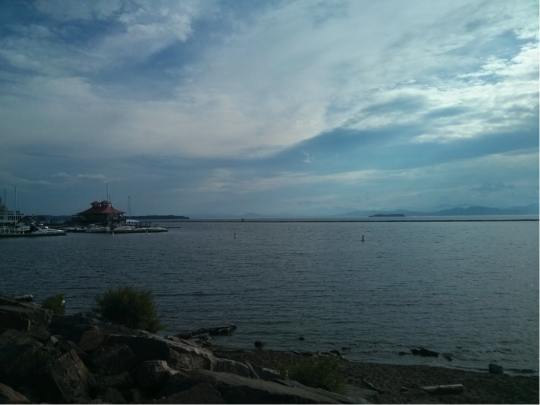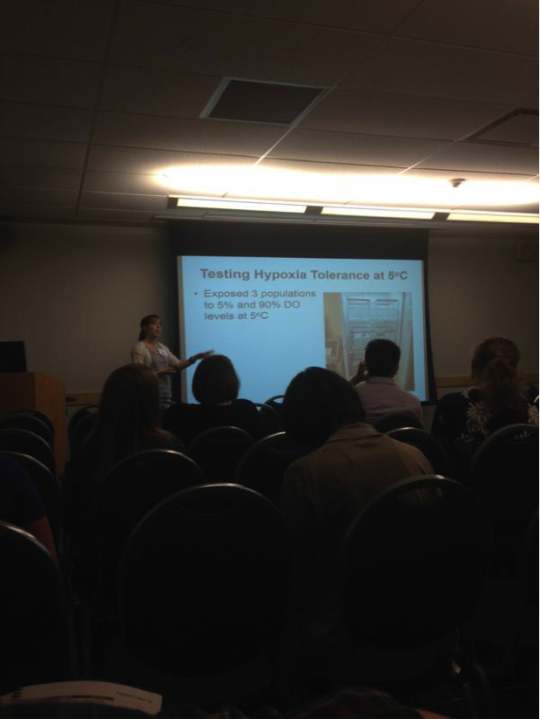by Andrea Morden
With the support of the QCBS
Excellence Award, I participated in the International Association for Great
Lakes Research (IAGLR) Annual Conference in beautiful Burlington, Vermont
during the last week of May. This year’s theme was New Views New Tools, and attracted researchers from around the
world. Attending this conference was certainly one of the highlights of my
research experience at McGill University in the QCBS network, and provided an
excellent opportunity to both disseminate my results and access professional
development opportunities.

A beautiful view of Lake
Champlain in Burlington, VT. Photo credit: Andrea Morden
My research focuses on the
northern range expansion of the invasive freshwater clam Corbicula fluminea, which is ubiquitous in the United States but
still rare in Canadian waterways. Attending this conference allowed me to
discuss my work with other researchers familiar with the species, who provided
invaluable feedback. I presented the results of an experiment testing
interpopulation variation in hypoxia tolerance of the Asian clam at low
temperatures that showed that differences between populations were driven by
varying size-tolerance relationships. My presentation connected me with other
Asian clam researchers from around the world, from the Darrin Fresh Water
Institute at Lake George in New York, to the Chinese Academy of Sciences in
Nanjing, China.

Sharing my results at IAGLR.
Photo credit: Rowshyra Castañeda
I was also able to attend
numerous sessions discussing new research on aquatic invasions in the Great
Lakes system, including recent developments in the dreissenid invasions, new
tools for aquatic invasive species modeling, and novel techniques to improve
early detection of aquatic invaders. Additionally, I participated in a workshop
on submitting manuscripts for publication, which provided excellent advice on
how to increase the likelihood of manuscript acceptance.
Overall, this conference gave
me an important opportunity to both share my research and develop as a
scientist. The Excellence Award from the Quebec Centre for Biodiversity
Sciences made this trip possible, and illustrates how generous support made
available to students by the QCBS is sustaining the next generation of
biodiversity science researchers in Quebec.

0 Comments